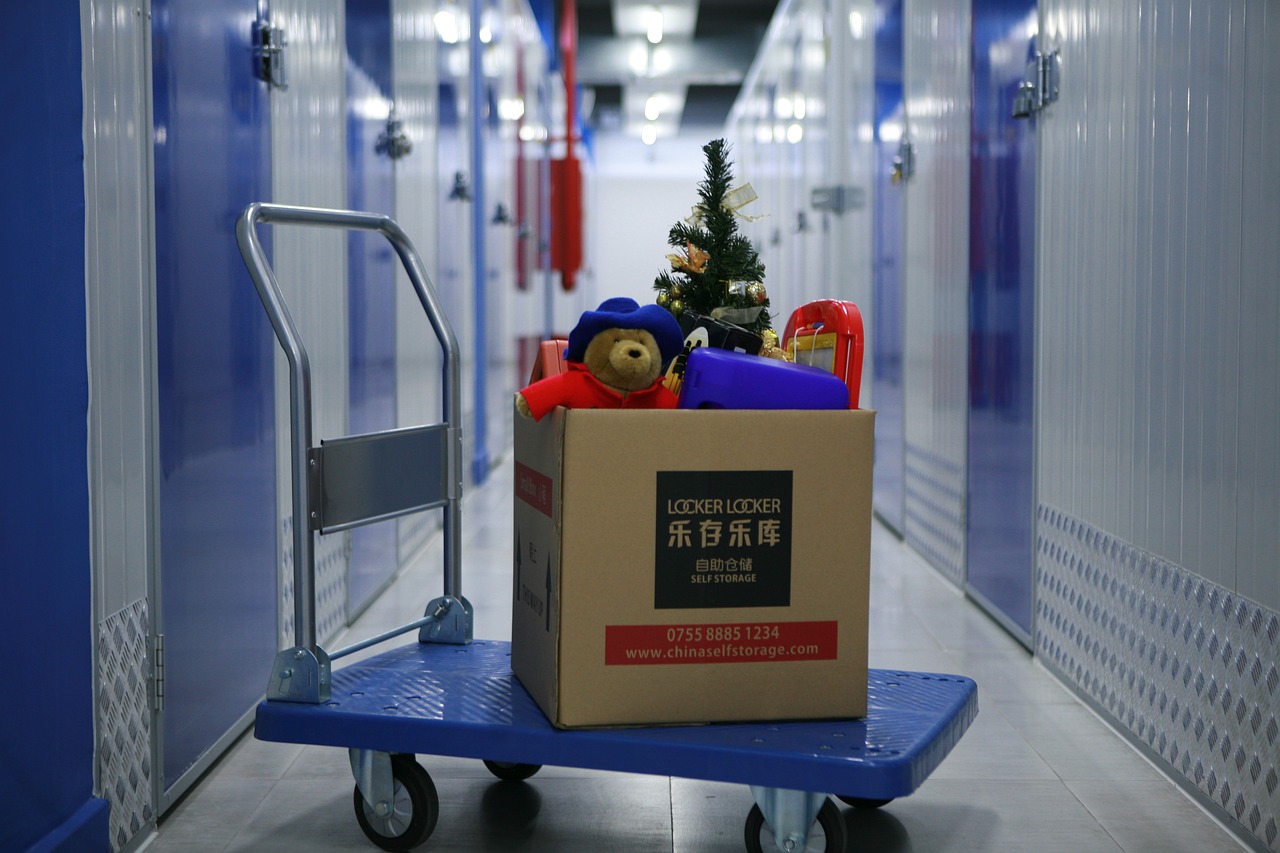Find self-storage near you
Do you need a Removals service?
The Psychology Behind Our Need for Self-Storage Spaces
 In the UK, where space is often at a premium and property trends are continually evolving, self-storage has grown from a niche service to a mainstream necessity. But beyond its practical benefits, there are deeper psychological and cultural reasons driving our reliance on these spaces. To fully understand this phenomenon, we need to explore the emotional connections people have with their belongings, the environmental implications of our consumption habits, and the cultural context that shapes our attitudes towards space and storage.
READ: Self Storage: TV Shows Get It Right (and Wrong)
In the UK, where space is often at a premium and property trends are continually evolving, self-storage has grown from a niche service to a mainstream necessity. But beyond its practical benefits, there are deeper psychological and cultural reasons driving our reliance on these spaces. To fully understand this phenomenon, we need to explore the emotional connections people have with their belongings, the environmental implications of our consumption habits, and the cultural context that shapes our attitudes towards space and storage.
READ: Self Storage: TV Shows Get It Right (and Wrong)
The Emotional Attachment to Possessions
Our emotional attachment to possessions is a powerful psychological driver behind the need for self-storage. This attachment can be explained through several psychological theories:Loss Aversion
According to behavioural economics, loss aversion refers to the tendency for people to prefer avoiding losses rather than acquiring equivalent gains. This means that losing an item—even if it’s just a material possession—can be perceived as more painful than gaining a new item is pleasurable. This fear of loss makes it difficult for many people to part with belongings, even if they no longer serve a practical purpose.Nostalgia
Nostalgia is a sentimental longing for the past, which can make certain possessions especially meaningful. Items such as family heirlooms, childhood toys, or mementoes from significant life events carry emotional weight and serve as tangible connections to our personal histories. For many people, these items are not just things but are imbued with personal memories and feelings that make them irreplaceable.The Endowment Effect
This psychological phenomenon occurs when people assign higher value to items they own compared to items they do not. This effect can make it difficult to let go of possessions, as individuals often perceive their belongings as more valuable simply because they are theirs. Self-storage becomes a solution that allows people to retain ownership of these valued items without having to constantly deal with their physical presence in their living spaces.The Environmental Impact of Consumerism
Our consumer habits have significant environmental implications, and self-storage is a part of this broader context. Here are two key perspectives on how self-storage intersects with environmental concerns:Extended Product Lifecycles
On one hand, self-storage can contribute to a more sustainable approach by extending the lifecycle of products. By storing items that might otherwise be discarded, individuals have the opportunity to reuse or repurpose these belongings later. This can reduce the frequency with which items are thrown away, thus potentially decreasing waste and the demand for new resources.Encouraging Consumerism
On the other hand, self-storage may enable continued consumerism by providing space for more possessions, which might delay the process of decluttering and reduce overall consumption. This can contribute to a cycle of acquiring and storing items without addressing the root issue of over-consumption. In the UK, where environmental awareness is growing, it is important to balance the convenience of self-storage with mindful consumption practices.The Cultural Context of Space in the UK
The UK’s unique housing landscape significantly influences the need for self-storage. Several cultural and practical factors play a role:Historical Housing Trends
The UK’s historical housing stock includes many terraced houses and smaller flats, which often lack ample storage space. This contrasts with countries like the United States, where larger homes with more built-in storage are more common. The limited space in traditional UK homes necessitates creative solutions for managing possessions, making self-storage a popular choice. As a marketplace connecting you with partner storage facilities, we offer options in London, Bristol, Manchester, and Liverpool to help you find the perfect storage solution.Privacy and Personal Space
The British cultural emphasis on privacy and maintaining a tidy home environment also drives the demand for self-storage. Many people prefer to keep their living spaces uncluttered and presentable, and self-storage offers a way to achieve this while still retaining access to personal belongings.Property and Identity
In the UK, there is a strong cultural connection between property and personal identity. The concept of “home” is deeply intertwined with one’s sense of self, and maintaining an organised and clutter-free living space is part of this identity. Self-storage helps individuals uphold their ideal of a clean, organised home while accommodating the belongings they want to keep.A Call for Reflection: Balancing Possessions and Space
As we navigate the complexities of modern living, it’s crucial to reflect on how our use of self-storage aligns with our broader values and goals. Here are some questions to consider:- 1. Purpose and Necessity: Are you using self-storage to keep items of genuine value, or is it a way to delay decisions about decluttering? Reflecting on the purpose behind your storage choices can help you make more informed decisions.
- 3. Cultural and Personal Values: How does self-storage fit with your cultural and personal values? Think about how your approach to managing possessions aligns with your ideals about home, space, and sustainability.


